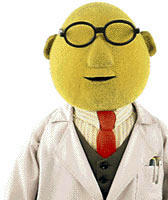
Some students will have problems with details of the next part of the course. In particular the discoveries and interpretations of modern science and specifically quantum science. There is no doubt that the recent experiments cause serious concerns with our perception of "reality".
To break us in gently I would invite you to spend some time with Richard Feynman. He was an extraordinary scientist that died in 1988. He was (and is) considered extraordinary because he combined genius, brilliance (never forget that they are different) and personality in a package that each generation seeks in its leaders. Students that were taught by him were devoted to him like disciples and he marked those that he touched. Most of America "discovered" Richard Feynman not because of his publications, discoveries or his Nobel Prize. He came to the worlds attention during the investigation into the first failure of the space shuttle. He was on the committee looking into the accident. During one particularly onerous session with one of the manufacturers of the shuttle (about the temperature dependence of the elasticity of the rubber rings that failed and caused the accident) Richard Feynman grabbed a piece of the rubber and plunged it into the pitcher of ice water that the committee had been drinking. It was immediately evident that in even this simple experiment that the rubber became stiff and would not form a seal thus leading to the failure of the shuttle. He was that kind of guy.
One of the last students to be taught by Richard Feynman wrote this:
"Feynman was gazing at a rainbow as if he had never seen one before. Or maybe as if it would be his last.
I approached him cautiously and joined him staring at the rainbow. It wasn’t something I normally did – in those days.
“Do you know who first explained the true origin of the rainbow ?” I asked.
“It was Descartes” he said. After a moment he looked me in the eye. “And what do you think was the salient feature of the rainbow that inspired Descartes mathematical analysis?” he asked.
“I give up ... what would you say inspired his theory?”
“I would say his inspiration was that he thought rainbows were beautiful”"
Feynman’s Rainbow, Leonard Mlodinow, Warner books, New York, 2003.
Of all the geniuses that populate the modern world of physics Richard Feynman was the most reflective and willing to engage the humanities in discussion. I strongly think that you would benefit from taking a few minutes and watch this video of Feynman that was recently posted by an Institute of Technology (so I assume that the rights are "clean")
Link to Feynman Video



No comments:
Post a Comment